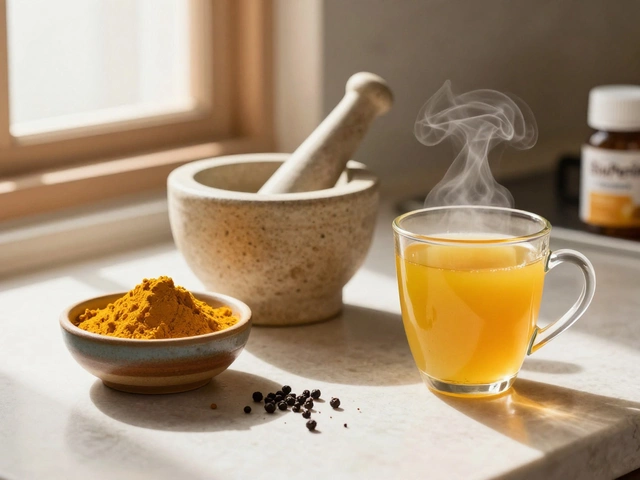Ever noticed how walking down the supplement aisle feels like shopping in a candy store for grown-ups? So many vibrant bottles, each making promises about energy, immunity, muscle, sleep, or simply feeling better. It‘s not just athletes or gym buffs who are drawn to these jars and packets—your aunt who swears by turmeric, your friend who carries magnesium capsules everywhere, even your coworker with their green smoothie fix. The world of dietary supplements is massive, sometimes confusing, and always evolving. But for those scratching their heads, looking for the basics before diving deeper, it all boils down to five main types. If you stick around, you’ll get the real scoop—no hype, no marketing spin—on what these supplements actually do, how to use them smartly, and which surprising facts might change how you look at that next bottle.
Vitamins and Minerals: The Micronutrient Powerhouses
Vitamins and minerals get plenty of attention, but not everyone realizes how essential—and how misunderstood—they can be. Think of them as the body’s pit crew, working behind the scenes to keep your engine running. There are 13 essential vitamins (like A, C, D, E, and K, plus the B-vitamins) and around 16 minerals (think iron, calcium, magnesium, zinc, and selenium) that our bodies need in varying amounts. Some we make, but most come from the food on our plates. Unfortunately, modern diets—packed with processed foods—don’t always deliver enough. That’s why nearly half of Indian adults took some kind of vitamin or mineral supplement in 2023, according to a survey from Apollo Hospitals.
Yet, more isn’t always better. Take iron: useful if you’re deficient (common for teens and women), but too much can mess up your liver or even your heart. Overdoing vitamin D? That might spike your calcium and hurt your kidneys. It’s simple—supplements are designed to fill nutritional gaps, not to replace a balanced, colorful diet. If you can, eat your nutrients! But let’s be honest: busy lives, odd work hours, or restricted diets mean some gaps are tough to avoid. Doctors most often recommend vitamin B12 for vegetarians (since it comes almost entirely from animal sources), iron for women under 50, and calcium/vitamin D for older adults. Easy tip: talk to a doc before starting anything new, especially if you take medication or manage a health condition.
Don’t get caught up in the myth of megadoses. The body is a picky absorber—what you eat affects how well your supplements work. For instance, vitamin D is absorbed better if you take it with a meal containing fat, but don’t mix iron with coffee or tea because those tannins can block the uptake. If you’re forgetful (like me), those once-daily multivitamin tablets can help, but don’t assume they cover everything. Real food brings thousands of “phytonutrients” that no pill can match. Here’s something surprising: research published in The Lancet in 2023 found that people who took vitamin supplements without medical advice were just as likely to be deficient as those who didn’t take any at all. Bottom line? Testing and tailored advice wins over guesswork.
Protein and Amino Acid Supplements: For Muscle, Recovery, and More
You don’t have to be a gym rat to appreciate protein. Need to repair a scraped knee? That’s protein at work. Want stronger hair, smoother skin, or balanced hormones? Protein. So it’s no wonder protein supplements—think whey powders, soy shakes, pea isolate drinks, and collagen peptides—are everywhere. In 2024, the Indian protein supplement market touched over $850 million, with a whopping 70% of buyers NOT being athletes. Many shift workers, busy parents, or even older adults use them to sneak in nutrition or offset low appetites. But here’s the deal: most healthy adults can meet their needs with two palm-sized servings of protein a day, unless they’re training hard or recovering from illness.
Is it safe to chug a shake post workout? For most, yes. Whey protein gets absorbed fast, perfect for muscle recovery, while casein (found in milk) digests slower, keeping you full longer. Plant-based proteins, like soy and pea, fit vegan diets and are easy on sensitive stomachs. Still, quality counts. Many powders are loaded with sugar, coloring, or non-food fillers. Always scan labels for “third-party tested”—no one needs a protein shake laced with sketchy additives.
BCAAs (branched-chain amino acids) and EAAs (essential amino acids) are other big sellers. Some studies suggest BCAAs help with muscle soreness after exercise. But if you’re already eating enough protein, these extras don’t do much more. Collagen has surged in popularity, especially for joint pain and skin health, but it doesn’t always build up in the same way as dietary protein. Want a pro tip? Mix your protein with actual food, like oats or smoothies, to boost absorption and taste.
| Type of Protein Supplement | Main Use | Common Users |
|---|---|---|
| Whey | Muscle building, recovery | Athletes, gym-goers |
| Casein | Slow absorption, satiety | Busy adults, night-time snackers |
| Plant-based | Vegan/vegetarian Diets | Vegans, lactose-intolerant |
| Collagen Peptides | Joint & skin health | Older adults, beauty enthusiasts |
No supplement can outwork a bad diet or poor sleep. If you’re thinking of adding protein, calculate your needs (usually 0.8–1.2 grams per kg of body weight for adults) and aim for variety. Skip the hype; real results come from balance—not just powders.

Herbal and Botanical Supplements: Nature’s Remedies (Sometimes)
Ayurveda has celebrated spices and herbs for centuries, and the modern supplement scene is just catching up. Walk into any pharmacy, and you’ll spot bottles of ashwagandha, turmeric, ginseng, ginkgo biloba, and garlic—each claiming to boost immunity, aid memory, or fight fatigue. Americans spent more than $12 billion on herbal supplements in 2024. India’s numbers are catching up fast, especially post-pandemic, when immunity became a buzzword and everyone wanted “natural” fixes.
The truth? Some herbs really do live up to the hype—but not all. Turmeric (curcumin) shows solid anti-inflammatory benefits; ashwagandha appears genuinely calming for anxiety and sleep; ginseng might give you a small energy boost. But don’t expect miracles. Many supplements contain only a fraction of the active ingredient found in clinical studies, or they’re cut with cheap fillers. In one random FDA check, nearly a third of imported “herbal” supplements didn’t contain what they advertised. The gold standard: look for brands that publish test results and avoid wild claims like “cures cancer” or “instantly loses 10 kg.”
Dosage matters—35 mg of curcumin won’t do what 600 mg does in trials. And remember, plant doesn’t always mean safe. St. John’s wort, a popular herbal antidepressant, can seriously mess with birth control pills and antidepressants. Licorice root impacts blood pressure. Mixing multiple herbal supplements, especially with allopathic medicines, needs serious caution. Best to check with an Ayurvedic or allopathic doctor before starting any herbals, especially for kids or seniors. Smart users track their symptoms, try one new supplement at a time, and watch for allergic reactions or tummy troubles.
| Herbal Supplement | Common Benefit | Warning/Interaction |
|---|---|---|
| Ashwagandha | Calming, anti-stress | May cause drowsiness |
| Turmeric (Curcumin) | Anti-inflammatory | Needs black pepper for absorption |
| Ginseng | Energy, immunity | Affects blood pressure, sugar |
| St John's Wort | Mood support | Major drug interactions |
Nature knows best, but it pays to be picky when picking pills. The smart move is to source from trusted brands, ask a lot of questions, and step back if something feels off.
Specialty Supplements: Targeted Help for Specific Needs
Enter the world of omega-3s, probiotics, antioxidants, and prebiotics—these supplements are engineered to go after a specific angle, not just plug gaps. Omega-3s (from fish oil, krill oil, or algae) fight inflammation and have real evidence for heart health. Studies in 2023 showed that people supplementing with at least 1,000 mg of EPA/DHA a day had a 16% lower risk of heart attack than those who didn’t. Not bad, right? Pregnant women and kids can benefit too, since omega-3s are key for brain and eye development.
Then you’ve got probiotics—“good” bacteria for your gut. These little guys keep your digestion smooth, boost immunity, and even affect your mood (believe it or not, your gut makes about 90% of the body’s serotonin). But beware: not all yogurts or probiotic tablets actually contain enough live cultures. Consumer Reports found that half of probiotic supplements had less than half the listed count by expiry. For real gut benefits, look for products that list live cultures by species and guarantee potency through the expiration date.
Antioxidant supplements (like vitamin E, green tea extract, or resveratrol) are another specialty niche. They promise to tackle oxidative stress—the cell damage from pollution, stress, ageing, or sun exposure. But studies are mixed. You can definitely have too much of a good thing; loading up on super-high doses of vitamin E can even raise your risk of bleeding or stroke. That’s why experts say: aim for antioxidant-rich foods (berries, nuts, veggies) and stick to supplement doses only under medical advice.
Finally, we have prebiotics. These are basically plant fibers that feed your good gut bacteria. Think onions, garlic, chicory root, and bananas. Some supplements bundle prebiotics with probiotics—it’s called a “synbiotic,” and 2022 research in Nutrition Journal linked synbiotics to better IBS outcomes after 4-6 weeks. One thing’s certain: digestive health is a top concern, and specialty supplements are a fast-growing market segment for a reason.
| Specialty Supplement | Main Benefit | Who should use? |
|---|---|---|
| Omega-3 (EPA/DHA) | Heart, brain, eyes | Adults, kids, pregnant women |
| Probiotics | Gut health, immunity | Those with gut issues, antibiotic users |
| Antioxidants | Cell protection | Older adults, high-stress individuals |
| Prebiotics | Feed good gut bacteria | Most adults, digestive issues |
Shopping for specialty supplements? Insist on transparency about sourcing, third-party testing, and shelf life. If it sounds too good to be true—like “Lose 10kg in 1 week!”—skip it. The right supplement can give your health a gentle boost, but no pill replaces sleep, movement, or a solid diet.





